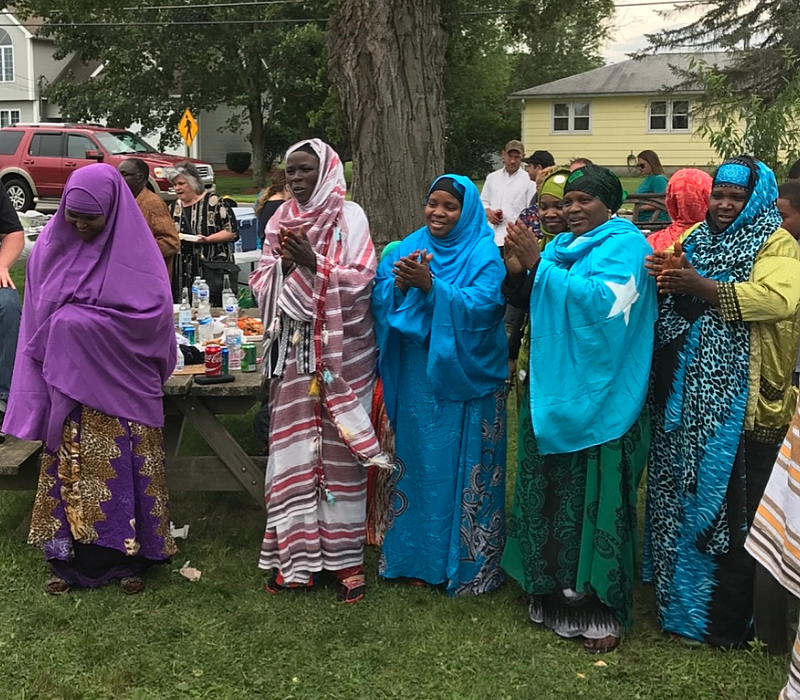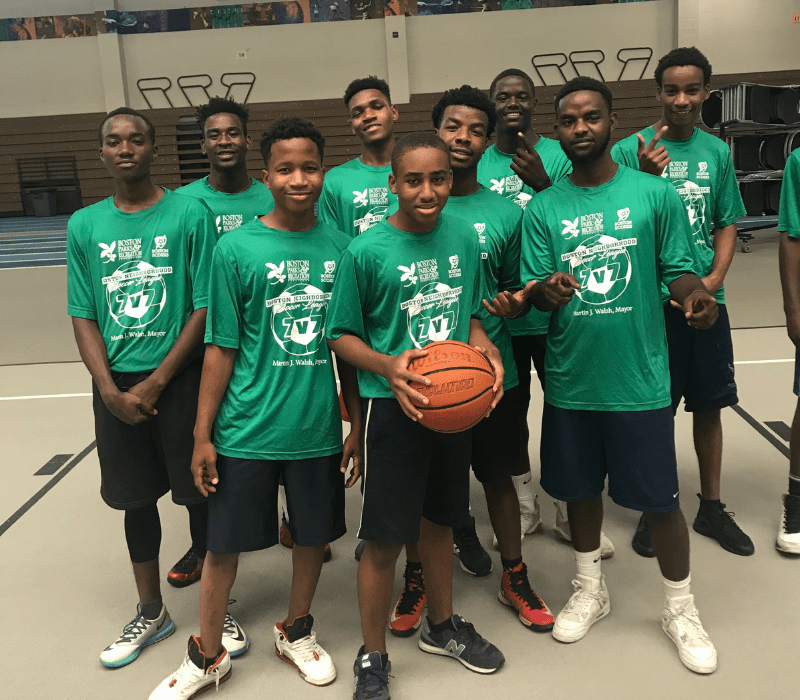March 15, 2021 Community Stories
Defying Odds, Springfield’s Somali Bantu Community Perseveres
Adan Abdi says he is lucky to be in Springfield.
During a civil war in Somalia, his parents fled to Kenya with him and his seven siblings when he was eight years old. They escaped widespread killings and persecution, worsened by drought and other natural disasters.
Humanitarian groups supported the Abdi family in Kenyan refugee camps for many years, until the U.S. began to accept Somali Bantu families beginning in 2003. (Somali Bantus, ethnically and culturally different from the general Somali population, have long been considered second-class citizens in their home country.)
Abdi’s family arrived in Springfield in 2004, thanks to Jewish Family Services (JFS) of Western Massachusetts resettlement efforts.

About 120 Somali and Somali Bantu families now live in Greater Springfield, according to Abdi. The Somali Bantu Community of Springfield, with Abdi as their volunteer leader, advocates for these families, mainly for housing, employment, and legal services.
“If someone is in need of services and resources, I’m able to connect them to other agencies and get them help,” Abdi says. Other volunteers lend a hand.
“COVID-19 was devastating for us all financially, mentally and physically,” Abdi reports. The typical family size is five to 12 people, and most adults are non-English speakers working at warehouses, farms, or other low-income jobs in the Springfield area. Many lost their jobs during the pandemic, though some have been called back.
With stabilization grants from the Community Foundation, the organization helped more than 60 local Somali and Somali Bantu families (about 700 individuals) impacted by COVID-19. The dollars provided food, diapers, gasoline, and desperately needed personal protective supplies.
“If you have a family of 12 in one apartment and one person gets COVID, how do you quarantine? How do you save your family members? There is no way you can do it,” Abdi says. “Culturally, our people will not abandon our family members, our grandmothers, our mothers, our brothers.”
Somali youth are particularly vulnerable. During COVID, it’s not unusual for a teenager to be home taking care of many siblings while both parents are at work trying to earn enough to pay the bills. There may be four or five children also trying to take part in online classes. Internet connectivity often collapses.

Abdi coaches youth soccer teams and organizes other activities for the young people “to keep them away from things that aren’t good for them or for their families,” he says.
Looking ahead, Abdi sees more heartbreaking challenges. Many Somali Bantu families face evictions and continued food shortages, and the mental health toll on these former refugee families is staggering. One young person recently took his own life.
Stabilization grant funds helped Abdi’s agency stay afloat when, during the pandemic, it suspended the $20 monthly member fees contributed by each family. The funds paid the rent and internet bills. More funding—just awarded from the Foundation—is on its way.
Abdi and other agency volunteers will continue to assist local families. He is counting on the resilience of his people and the generosity of their Western Massachusetts neighbors to guide Somali Bantu families toward safety, health, and self-sufficiency.
Photos courtesy of Somali Bantu Community of Springfield